Food Allergies in Cats: Recognizing the signs, Treatment and Prevention

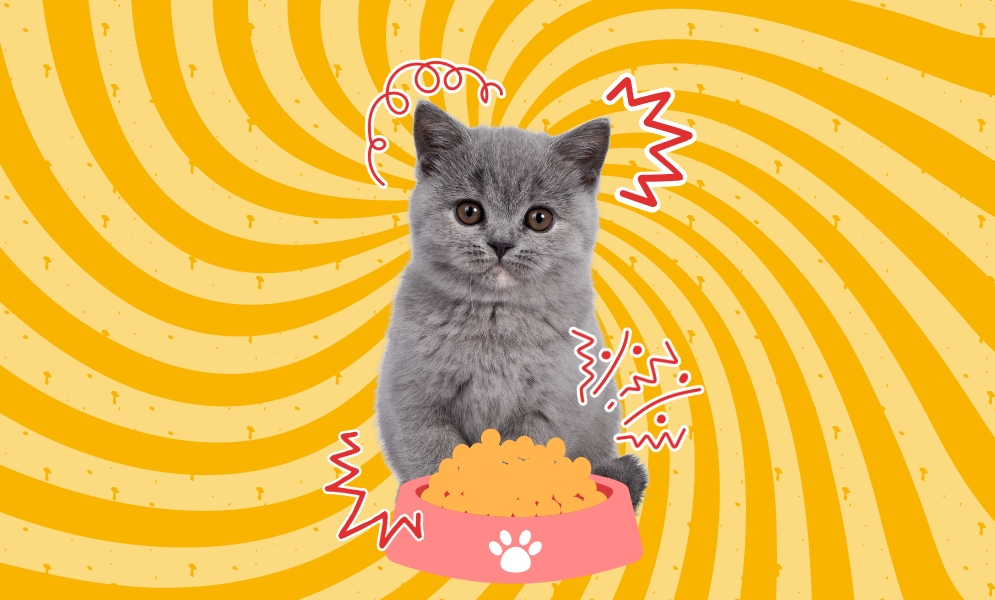
Is your feline friend constantly scratching, licking, or vomiting? These could be signs of a food allergy. While many cat owners focus on common allergens like pollen or dust mites, food allergies can be a significant culprit behind their pet’s discomfort. Unlike humans, cats can develop allergies to foods they’ve consumed for years.
This article will delve into feline food allergies, exploring symptoms, causes, diagnosis, and effective management strategies. Understanding this often-overlooked condition is crucial for providing your furry companion with the relief and care they deserve.
Understanding the Causes of Food Allergies in Cats
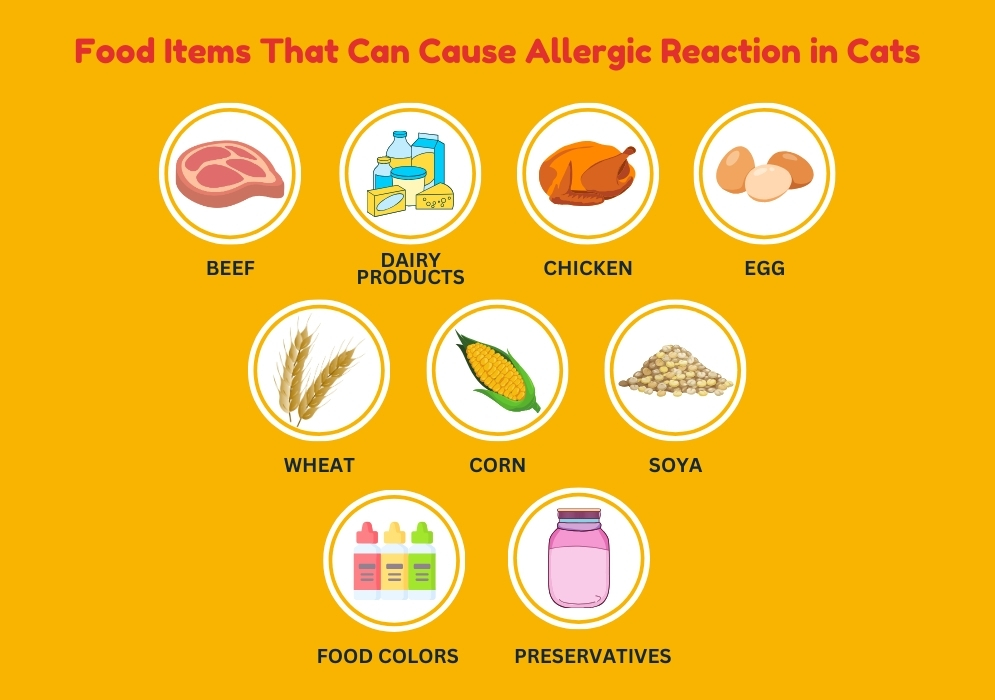
To effectively address food allergies in cats, it’s essential to know the underlying causes. Most of the time, food allergy is confused with food intolerance, but there are two different health issues. Food intolerances are digestive issues caused by the inability to break down certain ingredients.
On the other hand, food allergies are an immune response triggered by specific proteins in certain foods. Cats can develop allergies to a wide range of ingredients, but some of the most common culprits include:
- Protein sources: Beef, dairy products, chicken, fish, and eggs are among the top offenders for triggering allergic reactions in felines.
- Grains: Wheat, corn, and soy are frequently implicated in food allergies. It is because they contain proteins that can trigger an immune response.
- Additives and preservatives: Certain artificial additives, colorings, and preservatives in some commercial cat foods may also contribute to allergic reactions.
It’s important to note that food allergies can develop at any age and are not necessarily present from birth. Environmental factors, genetics, and even stress can play a role in the onset of these allergies.
Identifying the Symptoms and Signs of Food Allergies in Cats
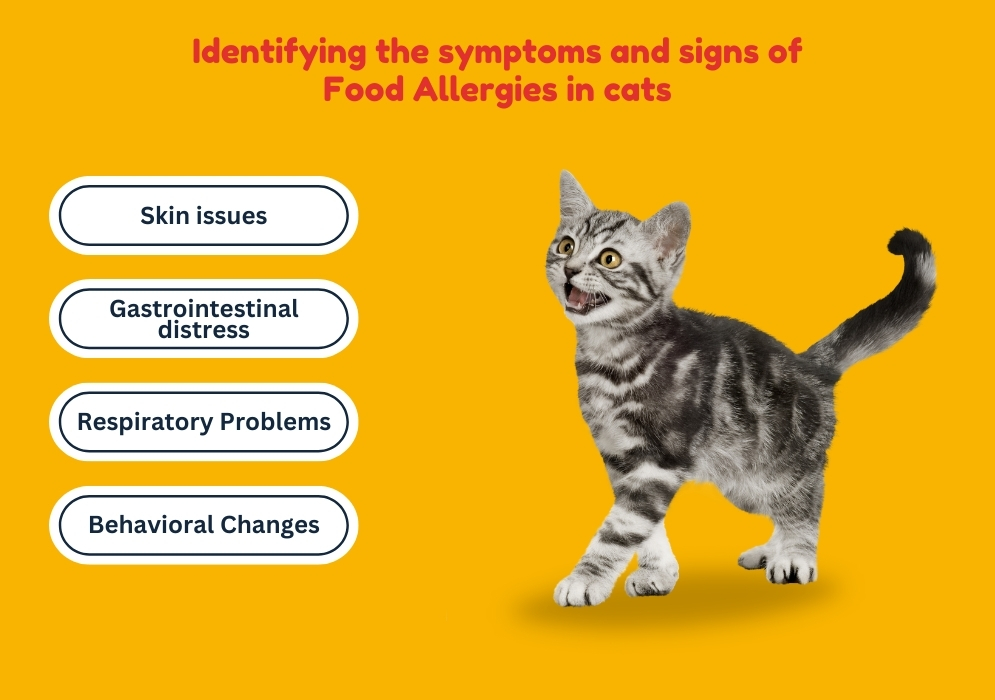
Recognizing the signs and symptoms of cat food allergies is crucial for early intervention and effective management. The exact symptoms can vary from cat to cat, but some common indicators include:
- Skin issues: Excessive licking, scratching, hair loss, rashes, and hot spots are often the most visible signs of a food allergy.
- Gastrointestinal distress: Vomiting, diarrhea, flatulence, and decreased appetite may indicate an allergic reaction to a specific food ingredient.
- Respiratory problems: Cat coughing a lot, wheezing, and nasal congestion can also be symptoms of a food allergy in some cases.
- Behavioral changes: Restlessness, irritability, or lethargy may accompany other physical symptoms.
It’s essential to be vigilant and closely observe your cat’s behavior and physical condition. If you notice any combination of these symptoms, you should consult with your veterinarian for proper diagnosis and treatment.
How Are Food Allergies in Cats Diagnosed?
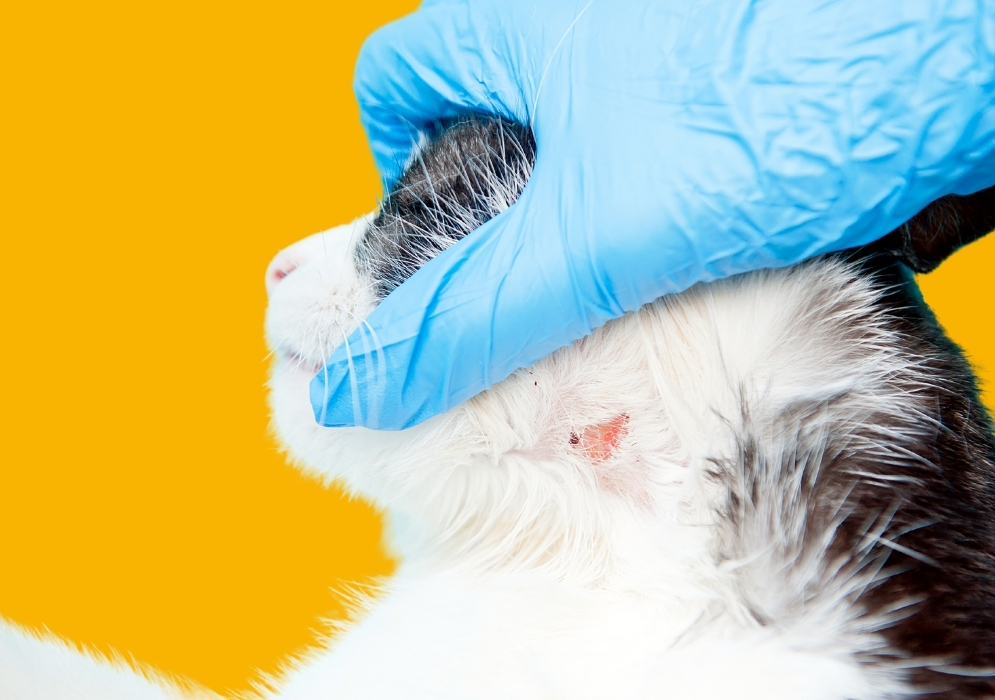
Diagnosing food allergies in cats can be a complex process. This is because there are no definitive tests yet to confirm the condition. However, your veterinarian will likely follow a combination of the following methods:
Step 1: Elimination diet
This involves removing certain food items that your cat is possibly allergic to for a certain time (usually 8-12 weeks). These food items are then reintroduced one by one to observe any reactions.
Step 2: Food trial
Your veterinarian may recommend a prescription or hydrolyzed protein diet. It contains broken-down proteins that are less likely to trigger an allergic response.
Step 3: Skin or blood tests
While unreliable, these tests can help identify potential allergens by measuring your cat’s immune response to specific proteins.
Step 4: Ruling out other conditions
Your veterinarian will likely perform a physical examination and additional tests to rule out other potential causes, such as parasites, infections, or environmental allergies.
It’s important to note that diagnosing food allergies can be a lengthy and challenging process. This is because cats can be allergic to multiple ingredients, and reactions may not be immediate.
Treating Food Allergies in Cats – Dietary Changes and Elimination Diets
Once a food allergy has been diagnosed, making changes in their diet is the primary course of action. This typically involves an elimination diet. Here, you remove the suspected allergen(s) from your cat’s diet for an extended period (usually 8-12 weeks) to allow the body to recover and symptoms to subside.
During the elimination diet, your veterinarian may recommend a prescription or hydrolyzed protein diet. This contains proteins broken down into smaller molecules, making them less likely to trigger an allergic response. These diets are carefully formulated to provide complete and balanced nutrition while avoiding potential allergens.
It’s crucial to follow your veterinarian’s instructions carefully and avoid introducing new foods or treats during the elimination period. The amount of food also matters so if you are wondering ‘How Much Should I Feed My Cat’, don’t hesitate to ask your vet. This is because it can compromise the process and make identifying the offending ingredient(s) difficult.
Once your cat’s symptoms have resolved, you can begin reintroducing potential allergens one at a time, closely monitoring for any adverse reactions. This process can help pinpoint the specific food(s) causing the allergic response and guide you in creating a long-term, allergen-free diet for your feline companion.
Managing Food Allergies in Cats – Tips for Prevention and Long-term Care
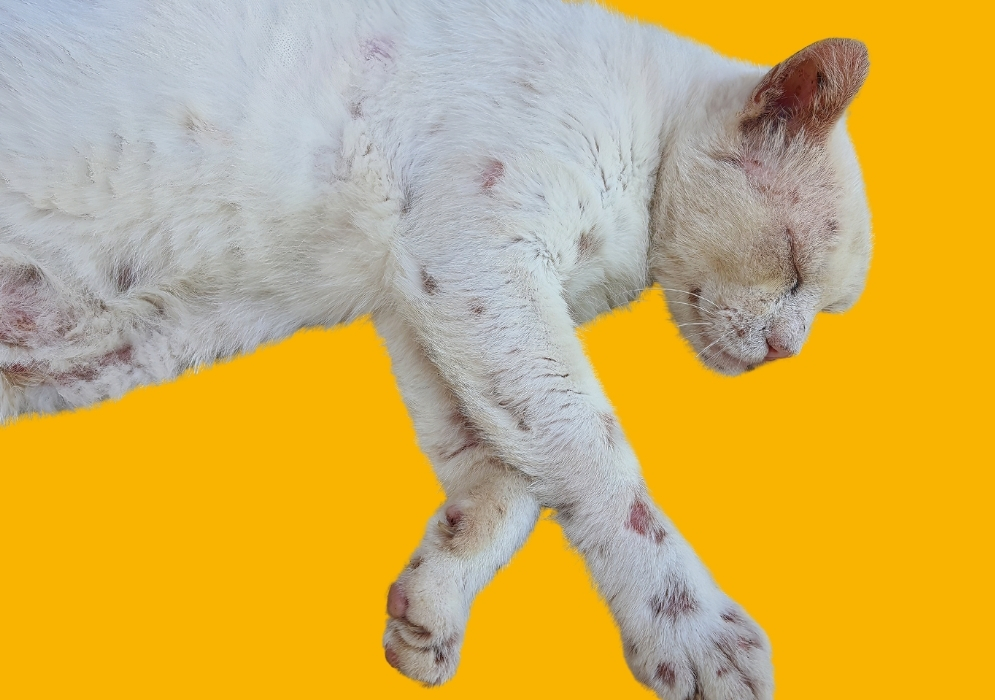
While food allergies in cats cannot be fully cured, they can be effectively managed. Here are some tips to help you provide long-term care for your allergic feline:
- Strict dietary adherence: Once you’ve identified the offending allergen(s), it’s crucial to maintain a strict allergen-free diet for your cat. This means carefully reading ingredient labels and avoiding cross-contamination with other foods.
- Consistent monitoring: Regularly observe your cat for any signs of recurring symptoms or new allergic reactions. If your cat is sick or notices any slight changes, promptly report it to your veterinarian.
- Environmental control: Reduce exposure to potential environmental allergens, such as dust, pollen, or mold, which can exacerbate food allergies.
- Stress management: Stress in cats can worsen allergic reactions, so provide a calm and enriching environment for them.
- Regular veterinary check-ups: Schedule regular visits with your veterinarian to monitor your cat’s condition and make any necessary dietary adjustments.
By following these guidelines, you can help minimize the impact of food allergies on your cat’s quality of life and ensure they remain healthy and comfortable.
Alternative Treatments for Food Allergies in Cats
While dietary modifications and elimination diets are the primary treatments for food allergies in cats, some pet owners may explore alternative therapies to complement conventional approaches.
However, it’s crucial to consult with your veterinarian before pursuing any alternative treatments, as they may interact with existing medications or have unintended consequences. Here are some alternative therapies that have shown potential benefits in managing food allergies in cats:
- Supplements and nutraceuticals: Certain supplements, such as omega-3 fatty acids, probiotics, and antioxidants, may help reduce inflammation and support your cat’s immune system. Ask your vet if you want to know more about what are cat supplements and whether your cat needs one.
- Herbal remedies: Some herbal remedies, like licorice root and stinging nettle, have anti-inflammatory and antihistamine properties that may alleviate allergic symptoms.
- Immunotherapy: Also known as allergy shots, immunotherapy is a process where you slowly introduce your cat to small amounts of the allergen to desensitize their immune system over time.
It’s important to note that the effectiveness of these alternative treatments may vary, and they should never replace conventional medical treatment prescribed by your veterinarian. Always consult a qualified veterinary professional before pursuing alternative therapies for your cat’s food allergies.
Seeking Veterinary Help for Food Allergies in Cats
While this article provides valuable insights into cats’ food allergies, it’s essential to seek professional veterinary guidance when dealing with this condition. Your veterinarian is the best source of personalized advice. They can help you navigate the complexities of diagnosing, managing, and treating food allergies in cats without hiccups.
During your consultation, your veterinarian will thoroughly examine your cat’s medical history. Based on that, they will recommend appropriate diagnostic tests and treatment plans. The vet can also provide guidance on selecting suitable allergen-free diets, monitoring your cat’s progress, and making any necessary adjustments to ensure optimal health and well-being.
Remember, managing food allergies in cats is an ongoing process that requires a lot of patience and diligence. You need to work closely with your veterinary professional to ensure your feline friend receives the best possible care and enjoys a happy, healthy life free from the discomforts of allergic reactions.






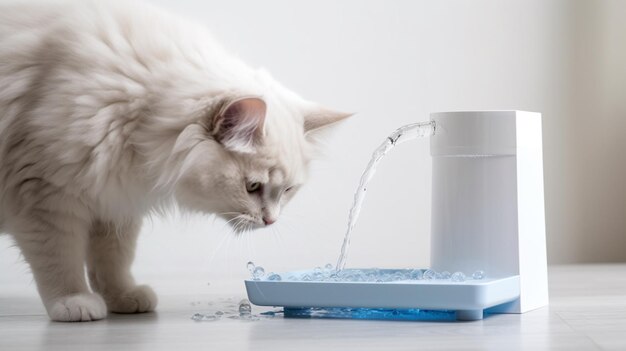
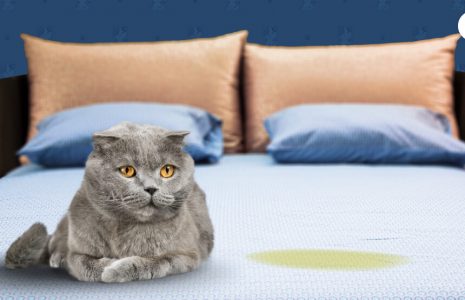
Leave A Comment